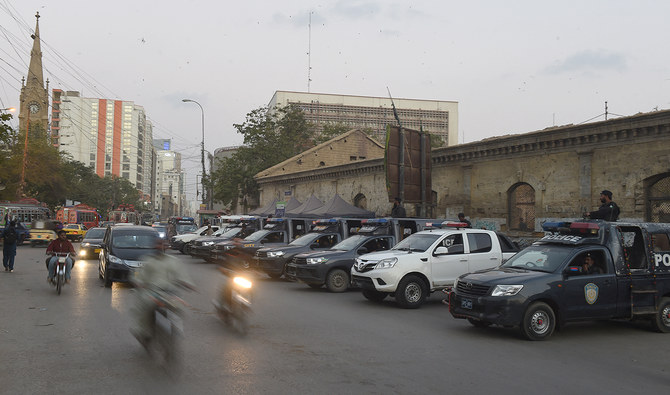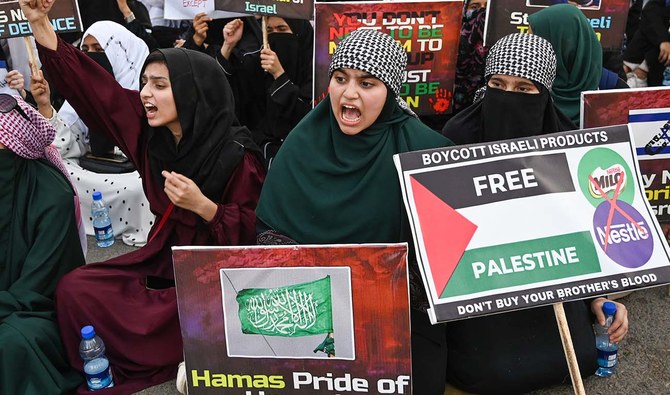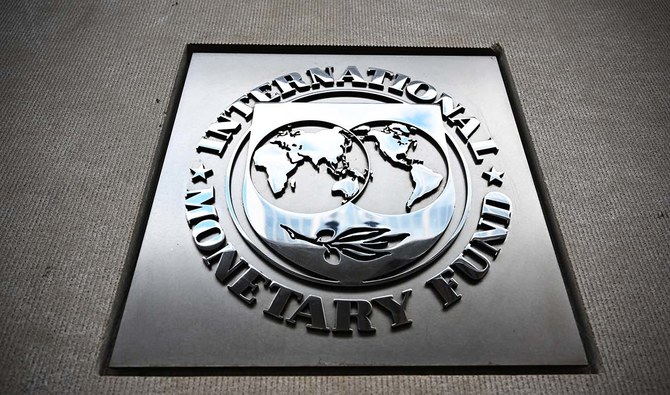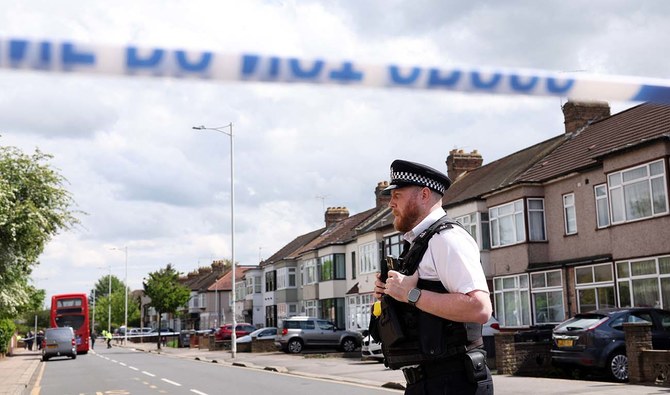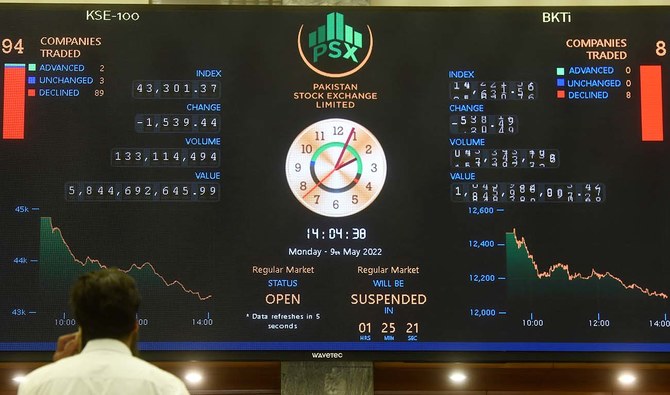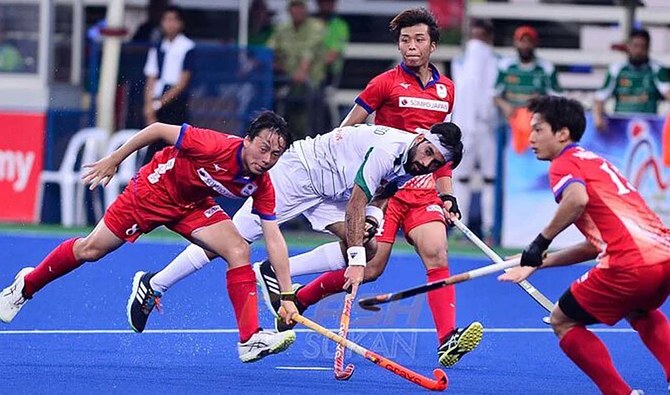KARACHI: Flimsy litigation and a high percentage of suspected criminals escaping justice in Pakistan’s southern port city of Karachi have resulted in growing mistrust among the public for the judicial system, experts say, adding that it is ultimately leading to an increase in instances of vigilantism.
Instances of lynching and burning are recurring phenomena in the South Asian country and often linked to vigilantism triggered by religious, financial and social reasons.
In Karachi, however, such actions are seen in response to loopholes in the criminal justice system or weak law enforcement, which often results in hardcore criminals escaping justice. Earlier this month, enraged people burned two suspected muggers alive in the city’s New Karachi area.
“There may be secondary reasons, but I see the police’s inaction and acquittals as major reasons for the public taking the law into their hands,” Afzal Nadeem Dogar, a veteran journalist who has covered Karachi crime for the past four decades, told Arab News on Saturday.
“In Karachi, there is an evident lack of trust in police and the courts.”
Until 2013, Karachi, also the financial hub of the country, was known as one of the world’s most dangerous places. As the law-and-order situation continued to deteriorate, the government tasked the Rangers paramilitary force to quell violence and street crime. The security operation came to be known as the “Karachi Operation,” which saw crime rates plunge and some of the country’s most-wanted men go behind bars.
But in recent years, the megapolis has seen a return of crime, alarming authorities and citizens who fear for a city that is home to Pakistan’s main stock market and generates most of the country’s tax revenue.
At least 18 people lost their lives to street crimes since January this year, while at least 110 were killed for resisting robberies last year, according to police data seen by Arab News.

Crime in the city has surged from 39,884 incidents in 2013 — when Karachi was dominated by various perpetrators of violence, including transnational outfits, the Pakistani Taliban and politically backed gangs — to 85,502 in 2022.
This translates into a 114.37 percent increase in criminal activities in the city over the last nine years.
The incidents of citizens having their mobile phones snatched have surged from 12,187 in 2013 to 28,481 in 2022, registering a 133.70 percent increase.
While the surge has raised many eyebrows and raised a question on the performance of the law enforcement, data obtained from the office of the prosecutor general of Sindh province, which Karachi is the capital of, presents a bleaker picture.
All district courts in Karachi disposed of 4,084 cases between January 2020 and August 2022 and acquitting 3,944, or 97 percent, accused and only 140 criminals could be convicted during this period.
In 2020, courts set 1,083 accused free in 1,124 cases. In the next year, 1,647 of the 1,699 accused, who were in jail, were acquitted. Similarly, 1,214 accused walked free in 1,261 cases in the first nine months of 2022 and only 47 criminals were convicted.
“When criminals are taken to courts, they [are easily able] to get free with their nexus with lawyers and the court staff,” Dogar explained.
The Sindh prosecutor general rejected the claim as “rubbish,” but the journalist insisted criminals in the city have lawyers on their monthly payrolls.
“There are lawyers who plead these specific cases, there are people who provide them surety for bails and as a result, they immediately come out,” Dogar said.
The veteran journalist said this not only frustrated the public but also law enforcement personnel, who have resorted to extra-judicial killings in some of the incidents.
“The terminology of ‘half-fry’ and ‘fry’ are famous in Karachi police. The arrested accused are killed (fried) and wounded (half-fried), but even those who have been injured have come out through the courts,” he said.
“An accused, who killed an engineering university student, Bilal Nasir, had been injured and arrested in the past, but he was set free before taking the life of the student.”
Zoha Waseem, an assistant professor at the University of Warwick who authored ‘Insecure Guardians: Enforcement, Encounters and Everyday Policing in Postcolonial Karachi,’ said a lack of trust in the state and criminal justice institution, which has different causes, is the reason for vigilantism and street violence in Karachi.
“In my opinion, lack of trust in the state and criminal justice institutions at large is the reason, whether it’s because of poor economic policies or inability to address insecurity or inability to investigate and prosecute properly,” she told Arab News.
Waseem said that vigilante justice that results in the lynching of robbers is a complex dynamic that needs to be explored. Police resorting to extra-judicial killings itself is a demonstration of mistrust by the institutions in the country’s criminal justice system, she added.
“When state pushes a narrative that criminals cannot be convicted through courts, it further strengthens fear and insecurity [that are] already prevalent in Karachi, which has a history of violence and lawlessness,” the expert said.
“Due to these reasons, there is general hopelessness and frustration. People vent out their anger when they get the chance.”
Javed Odho, the Karachi police chief, admitted that the low prosecution rate was the reason behind increasing lynching incidents. He, however, insisted that overall intolerance, mostly driven by economic conditions, was the prime reason behind it.
“Definitely, some of the reasons you quoted are correct, but these incidents are happening due to the overall intolerance in our society which has multiple reasons, including economic conditions, extremism and unemployment,” he said.
In most cases, Odho said, complainants fail to show up in court, adding that the process for that would also be simplified soon.
“We are working on simplifying the procedure to get the culprit punished,” he added.
Sindh Prosecutor General Dr. Fiaz Shah put the blame on poor investigation by police.
“Lack of coordination by police, unwillingness to remove defects, lack of digital collection of evidence are among reasons leading to the acquittals,” he told Arab News.
The official said when he introduced post-judgment scrutiny, 90 percent of acquittals were found to be the result of defective investigations.
“There is not only a need to start capacity-building programs for prosecutors, but investigators of police as well,” he added.



